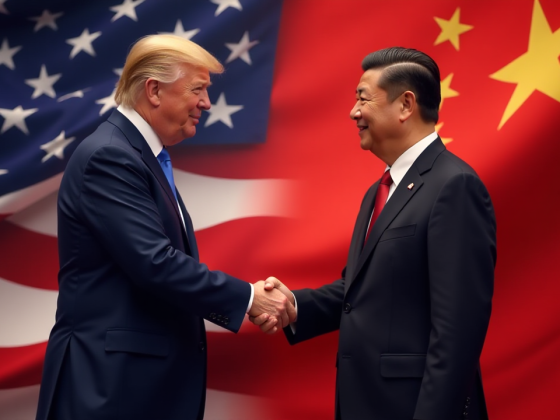India’s Maruti Suzuki, facing rare earth shortages, has significantly reduced its initial electric vehicle e-Vitara production goals by two-thirds, as revealed in a document, highlighting ongoing supply chain disruptions within the automotive sector due to China’s export restrictions, Reuters reported.
Reuters has reviewed a company document indicating that India’s leading car manufacturer, despite initially stating on Monday that the ongoing supply chain issues had not affected them, has adjusted its production targets for the e-Vitara.
The revised plan outlines the production of approximately 8,200 e-Vitaras from April to September, down from the initial target of 26,500 units.
Shortages in the rare earth materials crucial for magnets and various high-tech components were cited as the reason behind the constraints on supply.
The document still stated that Maruti intends to achieve its annual EV production goal of 67,000 units for the fiscal year ending March 2026 by increasing output in the months ahead.
China’s dominance
China’s imposition of restrictions on the export of specific rare earth minerals has sent shockwaves through the international automotive manufacturing sector, triggering widespread alarm among major players.
These companies have publicly expressed grave concerns about the potential for severe disruptions to their intricate and globally interconnected supply chains.
While some firms based in the United States, across various nations in Europe, and within Japan have reported a gradual easing of supply pressures, attributed to their successful acquisition of necessary export licenses directly from Beijing authorities, India remains conspicuously in a state of limbo.
Indian industries are still awaiting the critical regulatory approvals from China, leading to escalating anxieties about the imminent threat of potential production halts and significant economic setbacks.
This geopolitical tension has underscored the vulnerability of global industries to trade disputes and resource control, further emphasising the strategic importance of diversifying supply chains and developing alternative sources for essential materials.
The situation also highlights the complex interplay between international trade policies, national interests, and industrial stability in the modern world economy.
Maruti’s e-Vitara
The e-Vitara, unveiled with significant anticipation at India’s car show this January, is vital for Maruti Suzuki’s electric vehicle strategy in the nation.
This launch represents Maruti’s debut in a market segment the Indian government, led by Prime Minister Narendra Modi, aims to expand to 30% of all car sales by 2030, a substantial increase from the approximately 2.5% recorded last year.
A production delay for Maruti Suzuki’s electric SUV, the e-Vitara, has surfaced due to a rare earths supply issue.
This could negatively affect Suzuki Motor, as India is its primary revenue market and a key electric vehicle manufacturing center.
Most of the India-made e-Vitaras are intended for export to Europe and Japan by mid-2025.
Despite these concerns, Maruti stated that the rare earths problem would not significantly delay the e-Vitara’s launch.
Chair RC Bhargava had also noted that production is currently unaffected. Neither Maruti nor Suzuki responded to requests for further comments.
Following the announcement, Maruti’s stock price on the Indian stock exchange experienced a decline, dropping as much as 1.4% to reach its lowest point of the day.
The company has not yet commenced bookings for the e-Vitara.
Some analysts have expressed concern that Maruti’s EV launch is delayed in the world’s third-largest car market, where Tesla is also anticipated to start sales this year.
The post Supply chain issues force India’s Maruti to revise EV production targets appeared first on Invezz


